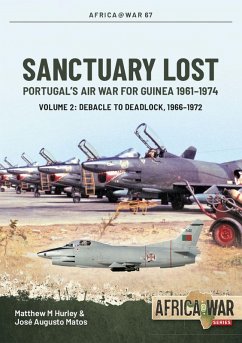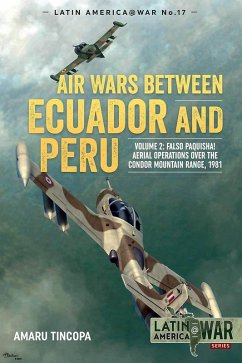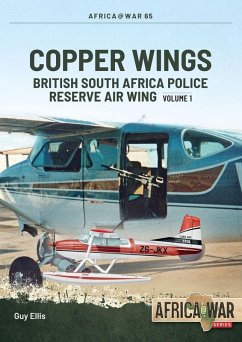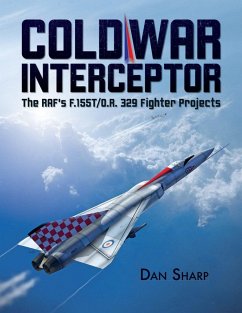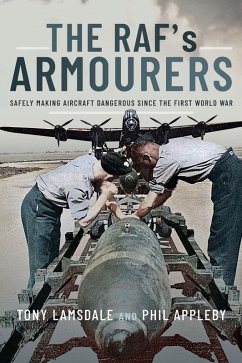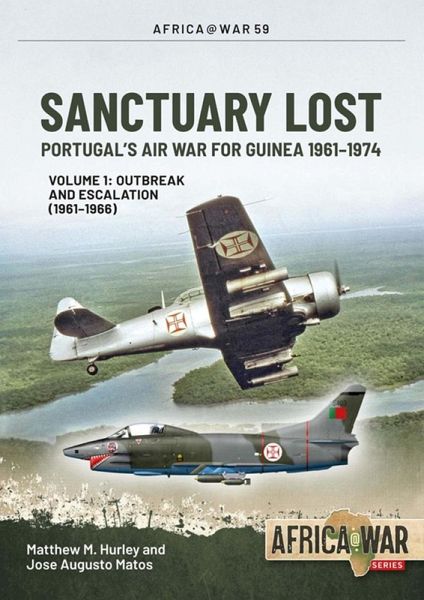
Sanctuary Lost: Portugal's Air War for Guinea 1961-1974 (eBook, ePUB)
Volume 1 - Outbreak and Escalation (1961-1966)
Versandkostenfrei!
Sofort per Download lieferbar
9,95 €
inkl. MwSt.
Weitere Ausgaben:

PAYBACK Punkte
5 °P sammeln!
From 1963 to 1974, Portugal and its nationalist enemies fought an increasingly intense war for the independence of "Portuguese" Guinea, then a colony but now the Republic of Guinea-Bissau. For most of the conflict, Portugal enjoyed virtually unchallenged air supremacy, and increasingly based its strategy on this advantage. The Portuguese Air Force (Força Aérea Portuguesa, abbreviated FAP) consequently played a crucial role in the Guinean war. Indeed, throughout the conflict, the FAP - despite the many challenges it faced - proved to be the most effective and responsive military argument agai...
From 1963 to 1974, Portugal and its nationalist enemies fought an increasingly intense war for the independence of "Portuguese" Guinea, then a colony but now the Republic of Guinea-Bissau. For most of the conflict, Portugal enjoyed virtually unchallenged air supremacy, and increasingly based its strategy on this advantage. The Portuguese Air Force (Força Aérea Portuguesa, abbreviated FAP) consequently played a crucial role in the Guinean war. Indeed, throughout the conflict, the FAP - despite the many challenges it faced - proved to be the most effective and responsive military argument against the PAIGC, which was fighting for Guinea''s independence. The air war for Guinea is unique for historians and analysts for several reasons. It was the first conflict in which a non-state irregular force deployed defensive missiles against an organized air force. Moreover, the degree to which Portugal relied on its air power was such that its effective neutralization doomed Lisbon''s military strategy in the province. The FAP''s unexpected combat losses initiated a cascade of effects that degraded in turn its own operational freedom and the effectiveness of the increasingly air-dependent surface forces, which felt that the war against the PAIGC was lost. The air war for Guinea thus represents a compelling illustration of the value - and vulnerabilities - of air power in a counter-insurgency context, as well as the negative impacts of over reliance on air supremacy. Volume 1 of Sanctuary Lost is extensively illustrated with photographs and specially commissioned color artworks.
Dieser Download kann aus rechtlichen Gründen nur mit Rechnungsadresse in A, B, BG, CY, CZ, D, DK, EW, E, FIN, F, GR, HR, H, IRL, I, LT, L, LR, M, NL, PL, P, R, S, SLO, SK ausgeliefert werden.




